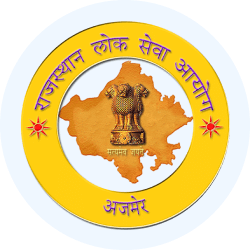1. Ecology – Components of Environment, Organization of Ecology | RAS RPSC Prelims Preparation - Notes, Study Material & Tests - RPSC RAS (Rajasthan) PDF Download
Ecology is defined "as a scientific study of the relationship of the living organisms with each other and with their environment."
The classical texts of the Vedic period such as the Vedas, the Samhitas, the Brahmanas and the Aranyakas‐Upanishads contain many references to ecological concepts. The Indian treatise on medicine, the Caraka‐ Samhita and the surgical text Susruta‐Samhita contain classification of animals on the basis of habit and habitat, land in terms of nature of soil, climate and vegetation; and description of plants typical to various localities.
Caraka‐ Samhita contains information where air, land, water and seasons were indispensable for life and that polluted air and water were injurious for health. The environment is defined as 'the sum total of living, non‐living components; influences and events, surrounding an organism.
Components of Environment
1. Abiotic – Energy, Radiation, TEMP, Water, etc.
2. Biotic‐ plants, animals, man, DECOMPOSER ETC.
Diesel engine exhaust fumes can cause cancer, humans" and it belong to the same potentially deadly category as asbestos, arsenic and 'mustard gases.
- Six main levels of organization of ecology are:
1. Individual‐ Organism is an individual living being that has the ability to act or function independently.
2. Population‐Population is a group of organisms usually of the same species, occupying a defined area during a specific time,
3. Community‐ Communities in most instances are named after the dominant plant form (species). A community is not fixed or rigid; communities may be large or small.
Types of Community‐
On the basis of size and degree of relative independence, communities may be divided into two types‐
(a) Major Community
These are large‐sized, well organized and relatively independent. They depend only on the sun's energy from outside and are independent of the inputs and outputs from adjacent communities.
E.g: tropical evergreen forest in the North‐East
(b) Minor Communities
These are dependent on neighbouring communities and are often called societies. They are secondary aggregations within a major community and are not therefore completely independent units as far as energy and nutrient dynamics are concerned.
e.g: A mat of lichen on a cow dung pad.
The environmental factors determine the characteristic of the community as well as the pattern of organisation of the members in the community The characteristic pattern of the community is termed as structure which is reflected in the roles played by various population, their range, the type of area they inhabit, the diversity of species in the community and the spectrum of interactions between them.
FAQs on 1. Ecology – Components of Environment, Organization of Ecology - RAS RPSC Prelims Preparation - Notes, Study Material & Tests - RPSC RAS (Rajasthan)
| 1. What are the components of the environment? |  |
| 2. How is ecology organized? |  |
| 3. What is the significance of studying ecology? |  |
| 4. How does ecology relate to the UPSC exam? |  |
| 5. Can you provide examples of ecological interactions? |  |























